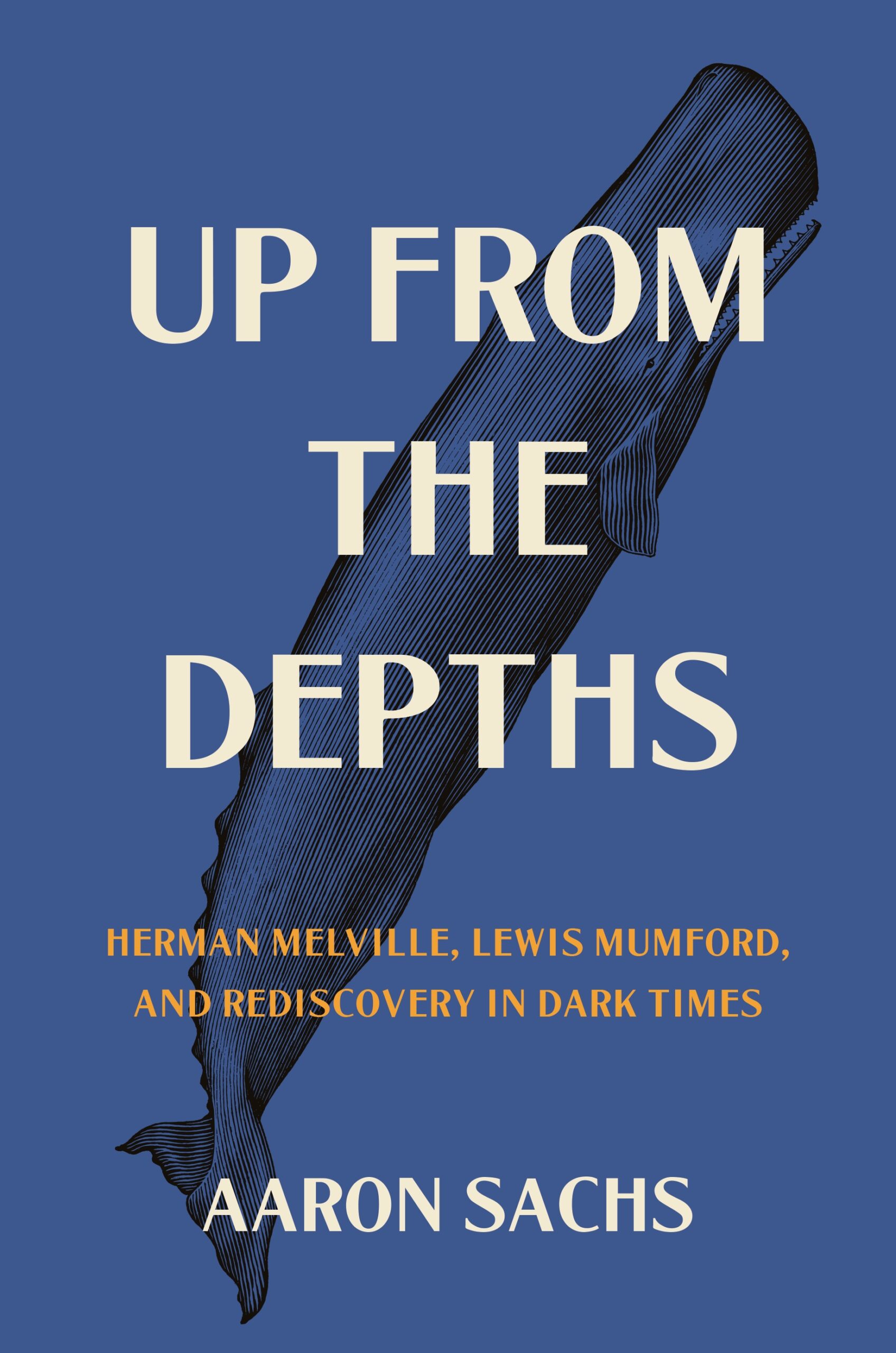It’s hard to fathom now, but just over 100 years ago the novelist Herman Melville had sunk into obscurity. Wildly popular at one point in his career, the author nevertheless ended his days engulfed by a torrent of hostile criticism and a maelstrom of personal demons. By the time his centennial arrived in 1919, Melville seemed destined to meet the fate of the doomed whaler whose voyage he had chronicled in Moby-Dick (1851). Instead, he was reincarnated into a literary figure as immortal as Captain Ahab. How did this resurrection happen?
This is the jumping-off point for Aaron Sachs’s immersive joint biography, Up from the Depths: Herman Melville, Lewis Mumford, and Rediscovery in Dark Times (Princeton University Press). In this rare and remarkable book, Sachs shows how our appreciation for Melville is largely thanks to the efforts of Mumford, an influential but now overlooked critic whose 1929 biography led the charge of the Melville Revival and repositioned the novelist at the helm of the American canon. In a fluid sequence of chapters that undulate backward and forward in time, focusing first on Melville, then on Mumford, Sachs reveals the uncanny parallels between the lives of his subjects, two tormented writers grappling with what he calls “the trauma of modernity.”
In the face of unprecedented historical events, most notably the psychic aftermath of WWI, Mumford looked to Melville’s confrontations with the tragic legacy of the Civil War, ultimately finding in the novelist’s dark vision a way to come to terms with his own troubled moment. In this spirit, Sachs makes a compelling argument that the time is ripe—in our “new dark age . . . of foreboding over disease outbreaks, climate change, economic inequality, racial and religious bigotry, technological overload, refugee crises, neo-fascism, and near-constant warfare”—for a Mumford Revival as well.
Mumford’s achievement, however, took a terrible toll. Plumbing the depths of Melville’s angst, the biographer was, by his own account, “swallowed up by [the] blackness.” As Sachs demonstrates in fascinating detail, Mumford’s work on Melville produced a nervous breakdown that “nearly killed him.” Melville, like Ahab’s elusive white whale, became something of a lifelong obsession for Mumford, who remained forever entranced by the novelist’s “desolate outlook” and, at the same time, was bolstered by its improbable redemptive potential.
“What has happened in history before may happen again,” Mumford observed in 1951, adding, perhaps somewhat hopefully, “after disintegration, renewal.” Sachs concurs: “Dark times will always spur retrospection”; to arrive at renewal, he writes, “we need to look backward not simply to track either progress or decline but rather” to perceive “the crosscurrents, contradictions, and eerie resonances of history.” In this masterly intellectual genealogy, with its keen analysis of both the perils of the biographer’s task and the problems of canon formation, Sachs accomplishes just that.



